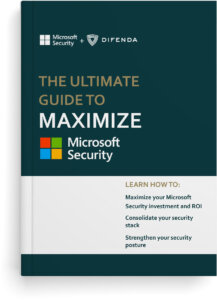
Your Certified Microsoft Security Partner must be able to help you detect and mitigate threats, meet regulatory requirements, while also helping you control costs through consolidation and automation.
Most vendors will claim to have these capabilities, regardless of their actual level of competence, so how should you differentiate them from other vendors?
Securing your environment is the first step to consider. Many providers will offer a variety of security services, but vendors will differ in their competencies, certifications, partnership levels, and overall approach.
In the next section, we will share seven questions to ask a Microsoft Security Partner during your evaluation period to ensure that security partners can deliver on their promises.
- What Microsoft certifications have you earned and what partnership tiers have you attained?
Microsoft partnership tiers varies by levels of expertise, choose a provider that is a gold security partner at a minimum. - What industry certifications do you maintain?
Industry certifications have become mandatory for security service providers, but be sure to do your due diligence. Make sure the provider has earned key certifications, such as PCI DSS, SOC 2 Type II, and ISO 27001. As the US-based CMMC framework emerges, this is another certification that service providers should have within their roadmap. - Are you Microsoft Security-focused or do you support multiple security technologies?
Strong Microsoft Security partners will focus their time and energy on the applications, infrastructure, cloud services, and other digital assets that you have invested in, providing protections designed to fully leverage Microsoft services and licensing, from the end point to the cloud to IoT and beyond. On the other hand, vendors who support multi-technology services are less likely to support a well-integrated cost effective delivery model. Look for a partner that is focused on Microsoft, so that you can take advantage of everything they offer to maximize your investment and properly secure your environment and data. - Do you leverage native Microsoft 365, Defender and Azure security services, along with third party intelligence?
Native Microsoft Security services are built on industry leading Microsoft threat intelligence, leveraging advanced machine learning techniques for rapid threat detection and to help protect your environment against zero-day threats. Leveraging third party threat intelligence helps to augment threat detection and hunting capabilities. - Are you a part of MISA (Microsoft Intelligent Security Association)?
The MISA ecosystem of independent software vendors and managed security service providers have integrated their solutions in order to better defend against evolving threats. MISA members are vetted by Microsoft, providing additional criteria that can be used to help confirm security service provider capabilities. - Do you have the capability to get a higher level of support for customers because of your relationship with Microsoft?
An advantage of working with Gold-level Microsoft Security Partners is that your support concerns will get fast-tracked, and your Microsoft Security Partner will be able to quickly escalate the issue until it is resolved. - Are you able to request funding from Microsoft to enable capabilities for your customers and take advantage of the Microsoft security suite of products?
Microsoft incentivizes its Security Partners in order to better attract and serve end users. Has your provider ever secured funding from Microsoft to help their clients get the latest threat protections?
Are you maximizing your investment in Microsoft Security?
Difenda’s NEW eBook: The Ultimate Guide to Maximizing Microsoft Security ROI provides insights like these as well with proven steps to get the highest possible value from your Microsoft Security investment, deployment, or migration.



